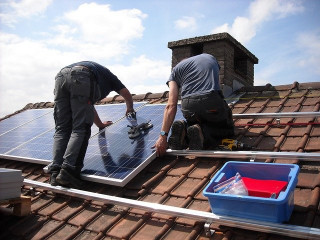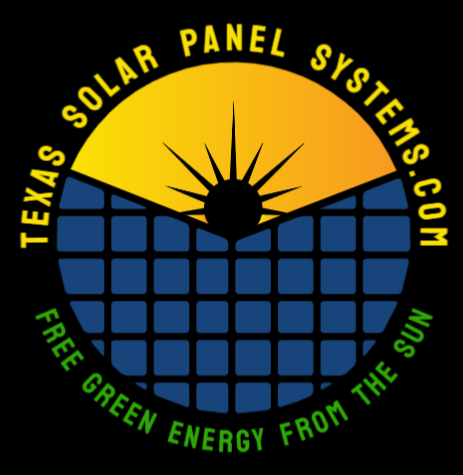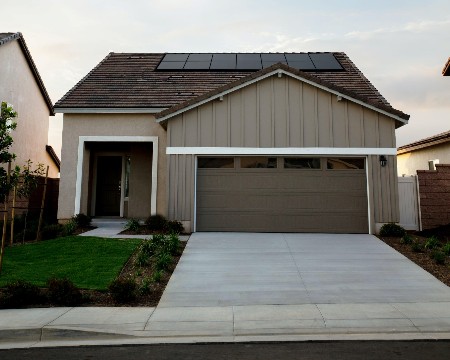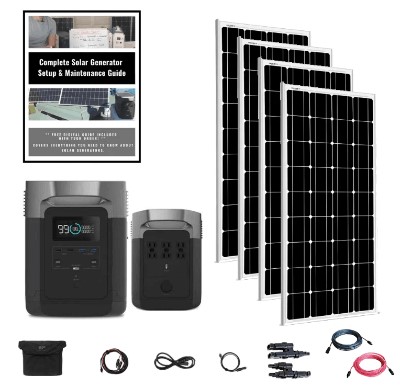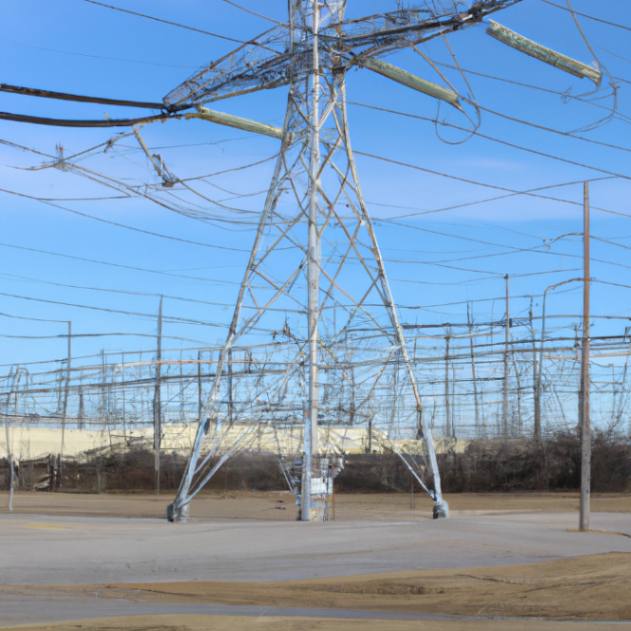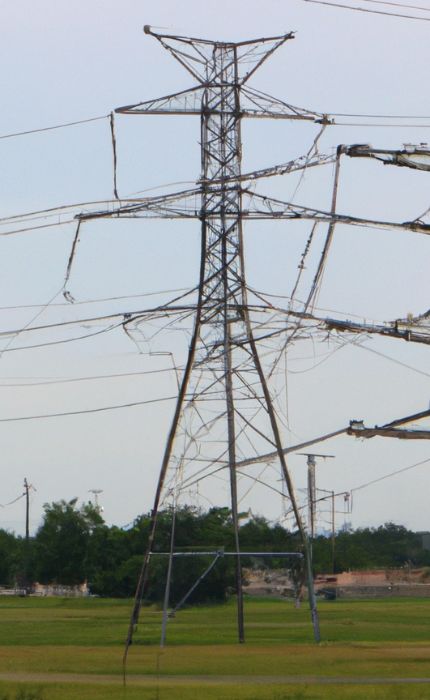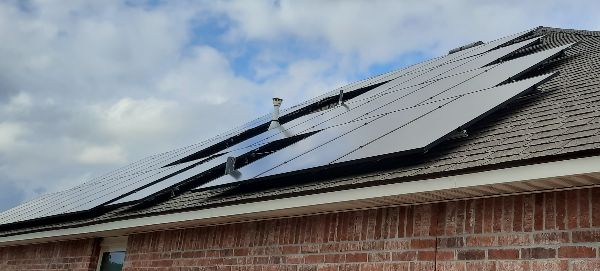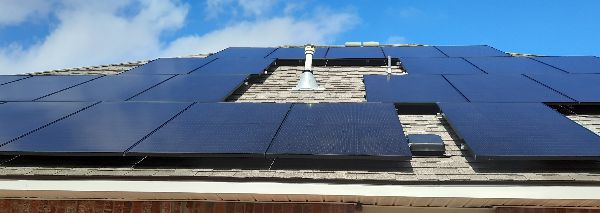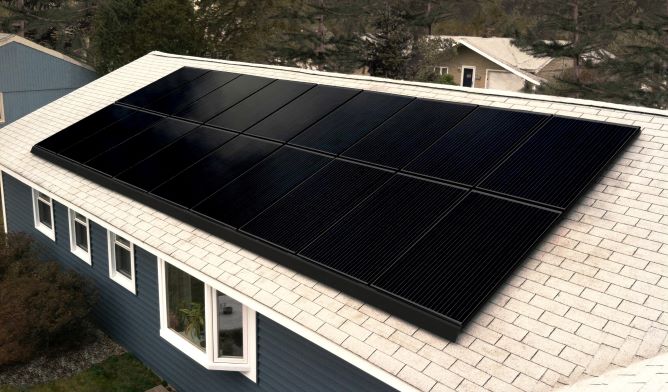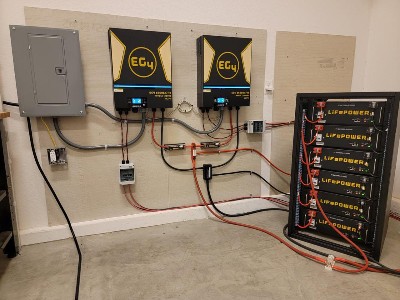Introduction to Solar Panels
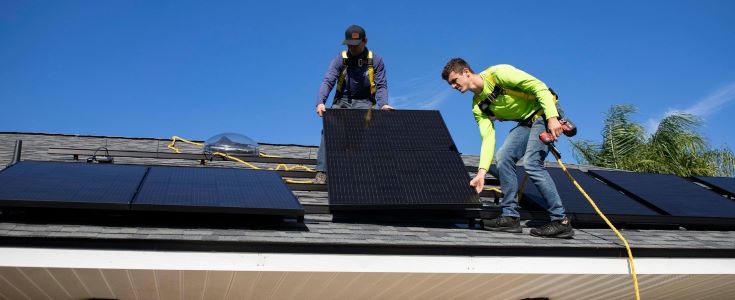
Welcome to the sunny city of Dallas, where solar energy shines brighter than ever! If you want to harness the sun’s power and reduce your carbon footprint, installing solar panels in Dallas is an innovative and sustainable choice. With abundant sunshine throughout the year and an increasing demand for renewable energy, going solar offers numerous benefits for homeowners in this vibrant Texan metropolis.
In this comprehensive guide to Dallas Solar Panels, we will explore everything you need to know about choosing, installing, maintaining, and saving money with solar panels in the Big D. So get ready to dive into a world of clean energy solutions that not only benefit our planet but also provide long-term financial advantages. Let’s embark on this enlightening journey together as we unlock the potential of solar power right here in Dallas!
Benefits of Installing Solar Panels in Dallas
Switching to solar energy by installing solar panels in your home or business in Dallas can bring numerous benefits. Not only will you reduce your carbon footprint and contribute to a greener environment, but you’ll also enjoy significant savings on your electricity bills.
One of the most significant advantages of solar panels is their ability to generate clean and renewable energy. You can reduce or eliminate your dependence on traditional fossil fuels by harnessing the sun’s power. This helps combat climate change, reduces air pollution, and creates a healthier living environment for all Dallas residents.
Another benefit is the potential for long-term cost savings. While an initial investment may be involved in purchasing and installing solar panels, they have a lifespan of around 25 years or more. During this time, you can expect substantial savings on your monthly electricity bills and protection against rising utility costs.
Furthermore, with net metering programs available in Texas, any excess energy generated by your solar panels can be fed back into the grid, allowing you to earn credits from your electric company to offset future usage charges.
Moreover, installing solar panels increases the value of your property. Homes equipped with solar systems are highly sought after as they offer potential buyers reduced electricity expenses and environmental benefits.
Various government incentives are available for adopting solar energy in Dallas, such as tax credits and rebates, which further enhance the financial returns associated with investing in solar panels.
By taking advantage of these benefits, installing solar panels in Dallas is an environmentally conscious decision and a smart financial one!
Different Types of Solar Panels Available in the Market
When choosing solar panels for your home, several different types are available. Each type has unique features and benefits, so it’s essential to understand your options before deciding.
1. Monocrystalline Solar Panels: These panels are made from a single crystal structure, giving them a uniform appearance and high efficiency. They are known for their sleek design and ability to generate more electricity in limited space.
2. Polycrystalline Solar Panels: These panels consist of multiple crystals rather than one large crystal. They have a lower cost than monocrystalline panels but slightly lower efficiency. However, they still offer excellent performance and durability.
3. Thin-Film Solar Panels: This type of panel is made by depositing thin layers of semiconductor material onto a substrate like glass or metal. Thin-film panels are lightweight and flexible, making them suitable for curved surfaces or portable applications.
4. Bifacial Solar Panels: Bifacial panels can absorb sunlight from both sides, increasing energy production by capturing reflected light from surrounding surfaces like rooftops or walls.
5. Concentrated Photovoltaic (CPV) Panels: CPV systems use lenses or mirrors to concentrate sunlight onto small photovoltaic cells, resulting in higher efficiency than traditional solar panels.
It’s essential to consider factors such as budget, available roof space, energy requirements, and aesthetic preferences when choosing the right type of solar panel system for your Dallas home. Consulting with a professional installer can also help you make an informed decision based on your needs.
Factors to Consider When Choosing Solar Panels for Your Home in Dallas
When it comes to choosing solar panels for your home in Dallas, there are several factors that you need to consider. These factors will ensure that you make an informed decision and get the most out of your investment.
It is essential to determine your energy needs. This involves assessing your current energy usage and considering future changes or expansions. You can choose solar panels with the appropriate capacity by understanding how much electricity you consume daily.
Consider the available space on your property for installing solar panels. Different types of solar panels require different amounts of space. For instance, smaller and more efficient panels may be better with limited roof space.
Another factor to consider is the efficiency of the solar panels. High-efficiency panels produce more electricity per square meter compared to lower-efficiency ones. While these may initially come at a higher cost, they can generate more significant savings over time.
Durability is also crucial when selecting solar panels for your home in Dallas. The climate conditions in Texas can be extreme, so it’s essential to choose panels built to withstand heat, humidity, hailstorms, and other weather challenges.
Take into account the warranty offered by the manufacturer or installer. A good guarantee ensures that any issues or defects with the panel will be covered within a specified time.
By considering these factors when choosing solar panels for your home in Dallas, you can make an informed decision that meets your energy needs and budget requirements without compromising quality or efficiency.
How to Install Solar Panels in Dallas, Texas
Installing solar panels in your home in Dallas, Texas, is a great way to harness the sun’s power and reduce your reliance on traditional energy sources. But how exactly do you go about installing solar panels? Here are some steps to guide you through the process.
First, determine if your roof is suitable for solar panel installation. Ideally, it should be south-facing and free from shading throughout the day. If necessary, trim any overhanging trees that may cast shadows on your roof.
Next, consult a professional solar installer who can assess your energy needs and recommend the right system size. They will also handle all the permits and paperwork the city or county requires.
Once you have chosen a reputable installer, they will schedule a date for installation. Their team will arrive on that day with all the equipment to mount the panels securely onto your roof.
The next step involves connecting the solar panels to an inverter, which converts DC power into AC power that can be used in your home. The inverter is usually installed near your main electrical panel.
After everything is connected and adequately wired, an inspection will ensure everything meets safety standards. Once approved by local authorities and utility company representatives (if applicable), you’re ready to start generating clean energy!
Remember that while installing solar panels yourself as a DIY project is possible, hiring professionals with experience with proper installation techniques and safety protocols is highly recommended.
By following these steps and working with trusted experts in the Dallas, Texas, area Solar Panel Installation industry, you’ll soon be reaping the benefits of renewable energy while reducing your carbon footprint!
Maintenance and Cost-Saving Tips for Dallas Solar Panels
Regular maintenance is essential to ensure optimal performance and longevity of your solar panels. Here are some cost-saving tips to remember when maintaining your solar panel system.
1. Keep the panels clean: Dust, dirt, and debris can accumulate on the surface of your solar panels over time, reducing their efficiency. Regularly cleaning them with a soft brush or hose will help maximize their energy production.
2. Trim surrounding trees: If any trees or branches cast shade on your panels, consider trimming them back to ensure maximum exposure to sunlight. This will improve the overall performance of your system.
3. Monitor energy consumption: By monitoring how much electricity you consume, you can adjust your usage accordingly and potentially reduce your reliance on grid power even further.
4. Invest in battery storage: Adding battery storage to your solar panel system allows you to store excess energy generated during the day for use at night or during cloudy days. This reduces dependence on utility companies and can lead to significant long-term savings.
5. Schedule regular inspections: It’s essential to have a professional inspect your solar panel system regularly for any issues or damage that may affect its performance. Early detection and timely repairs can prevent costly repairs down the line.
Following these maintenance tips can save money and ensure that your Dallas solar panel installation continues providing clean energy for years.
Government Incentives and Rebates for Installing Solar Panels in Dallas
One of the significant advantages of installing solar panels in Dallas is the availability of government incentives and rebates. These financial benefits make going solar even more appealing to homeowners looking to reduce their energy costs and carbon footprint.
The federal government offers a tax credit known as the Investment Tax Credit (ITC), which allows homeowners to claim up to 30% of the total solar panel system installation cost. This credit can significantly offset the upfront expenses associated with going solar.
In addition to the federal ITC, state-level incentives are available in Texas. The Lone Star State offers property tax exemptions for residential properties with installed solar systems. This exemption means that your property taxes will not increase due to the added value of your solar panels.
Furthermore, some utility companies in Dallas offer net metering programs, allowing you to earn credits on your electricity bill for any excess energy your solar panels produce and send back into the grid. These credits can further reduce or even eliminate your monthly electricity bills.
It’s essential to research and understand all available incentives and rebates before investing in a solar panel system. Consulting with a professional installer or doing thorough online research can help you navigate these programs efficiently.
By taking advantage of these government incentives and rebates, homeowners in Dallas can enjoy substantial savings while positively impacting their finances and the environment.
Conclusion on Solar Panels In Dallas
In this comprehensive guide, we have explored the world of solar panels in Dallas. We have discussed their benefits, different types available in the market, factors to consider when choosing them for your home, installation process, maintenance tips, and cost-saving strategies. Additionally, we have touched on government incentives and rebates that make installing solar panels even more appealing.
By harnessing the sun’s power through solar panels, residents of Dallas can reduce their carbon footprint while enjoying long-term financial savings. With an abundance of sunny days throughout the year in Texas, it’s no wonder that solar energy has become increasingly popular.
Investing in solar panels is wise whether you are motivated by environmental concerns or looking to save money on your electricity bills. As technology advances and costs decrease over time, now is an opportune moment to join the renewable energy revolution.
So why wait? Take advantage of all that Dallas offers and positively impact your wallet and our planet by considering installing solar panels for your home today!

